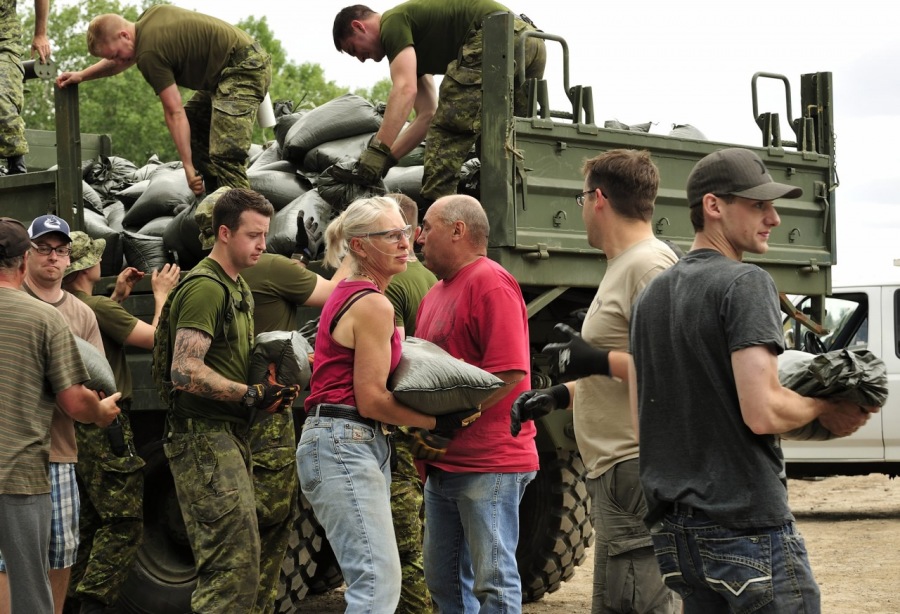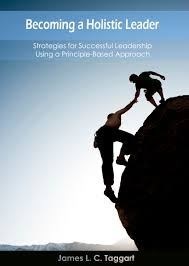Turning People On to Teamwork

It’s important that leaders set the proper context—the atmosphere—for teamwork. Remember, teamwork is not an end to itself. It’s built around the need to accomplish something. A common purpose, mutual accountability, interdependence of effort, and trust serve as the foundation to building a strong team.
In building a strong team, it’s vital in the early stage that people learn about themselves. They need to understand their own strengths and weaknesses and what they need to do to respond to the latter. They must develop their own personal visions of what they want to achieve in their lives and how they’re going to realize this. And a key component of this is people taking responsibility for their personal growth and development. This is achieved best by adopting a lifelong learning philosophy, one in which the team member strives to continually improve himself or herself.
Following this approach will enable a team’s members to transcend to team learning. In essence, this is not just about sharing information. More importantly, it’s about the existing boundaries among team members. Interpersonal learning takes place when the members must depend on one another for their own rewards. Of course, this raises such issues as resolving conflict effectively, solving problems collaboratively, and running productive meetings.
Turning people on to teamwork means creating those conditions that allow people to meet their personal needs by performing the work themselves. Instead of motivation, what drives people forward is commitment, in which their energy is directed towards a goal. To build commitment is less a matter of changing the person as it is creating the right conditions.
The team leader requires special skills if he or she is to be successful in fostering team learning and in setting boundaries for the team. These essential skills include: leading the team towards creating a common vision and team goals, communicating clearly and concisely, running productive meetings, and solving problems quickly, as well as anticipating them.

In a team setting, this requirement to earn the privilege of being the team leader cannot be overstated. The leader’s purpose is to inspire and mobilize the team to higher levels of performance. The leader achieves this by enabling the team’s members. And this can only be done if the leader gives up control. This is one of the most difficult challenges many managers will experience in their careers. Yet it’s essential if the members of a team are to assume greater responsibility and ownership for their work.
Abraham Maslow made this poignant comment on control and authority, and one that should be heeded by aspiring leaders: “When the only tool I have is a hammer, I tend to treat everyone like a nail.”
Don’t forget that an effective team isn’t just concerned with getting work done but also with how it gets done. Process (how decisions are made) is critical. Strong teams with solid leaders don’t compromise or vote. They operate by consensus, guided by their common vision and purpose.
In teamwork, silence isn’t golden, it’s deadly.
— Mark Sanborn
____________________________________________________________________________________________________

Articles from Jim Taggart
View blog
In my last post I talked about building team performance. Today, we look at what kind of team player ...

In the previous post Is Your Team REALLY a Team? Why Instant Pudding Doesn’t Cut It we looked at the ...

Your faithful correspondent has been a long-time proponent of self-empowerment, writing extensively ...
You may be interested in these jobs
-
Responsable de dossiers
1 day ago
PVRH-Recrutement Estrie, CanadaNotre client, un cabinet comptable solidement établi, jouissant d'une très bonne réputation et en grande expansion, situé en Estrie, est à la recherche d'un · RESPONSABLE DE DOSSIERS · (Télétravail et horaire flexible) · Vous désirez faire partie d'une équipe dynamique favorisan ...
-
hairstyling salon manager
7 hours ago
TALENT NAIL & HAIR SPA Surrey, CanadaEducation: Secondary (high) school graduation certificate · Experience: 2 years to less than 3 years · Tasks · Establish or implement policies and procedures for staff · Plan and control budget and inventory · Manage contracts for advertising or marketing strategies · Hire, train ...
-

Remote Consultant m|w|d
6 days ago
NetDynamic Consulting Mississauga, ON, CanadaFunctional Consultant - Manufacturing · Functional Consultant - Manufacturing · Full-Time · Professional Services · Remote · Bachelors Degree · WORK EXPERIENCE · LANGUAGE · English · Functional Consultant - Manufacturing · About NetDynamic Consulting · NetDynamic Consu ...


Comments